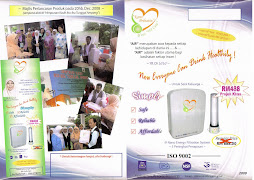Is there a smoker in the House?
WHEN it comes to smoking in government buildings, is there one law for Members of Parliament, and another for the ordinary people they represent? Are lawmakers too good for the laws they make, asks ANIZA DAMIS. The wanton smoking that goes on all over in Parliament appears to suggest so.
IT IS 11.30am. After one-and-a-half hours of work, a few workers slip out of the office and sneak a quick cigarette or five. Slowly, and in informal shifts so that the office isn’t left too empty, the workers are joined by other colleagues, who all gather round for coffee shop-talk, a plate of mee goreng or a bowl of bubur kacang, teh tarik and an illicit puff. No Smoking signs abound everywhere. They are ignored. Whether in the cafetaria or in the lounge, smokers sit or stand in front of the signs, carefreely waving their white-stick-adorned fingers. So what? you might say — smokers can be delinquent that way.
Except, these ‘workers’ are Parliamentarians, and the ‘office’ is the Dewan Rakyat, and the cafetaria and lounge are in the Parliament building. At any time of the day or night, MPs, their assistants, and government ministry officials can be seen smoking, either at the Parliament cafetaria, at the MPs lounge, or the two ante-chambers on either end of the MPs lounge. All these areas are no-smoking zones. There is a designated smoking area; a glass-walled open-air garden, not three metres from the MPs lounge, and less than 20 metres from the cafetaria. But only a handful of smokers are conscientious enough to take their smoke there. Is nothing sacred anymore? Well, MPs are human, too, some might argue. But MPs are not mere humans, in spite of the “you monkey!”-level arguments we might occasional hear. In as far as obeying the law is concerned, MPs are not equal to the ordinary citizen: MPs also have a moral obligation to obey the law, because it is MPs, as lawmakers, who make the laws. How is it fair for MPs, who represent the people, to place restrictions and hardship on their constituents, while at the same time considering themselves to be above the very laws they themselves made? Under Regulation 11(1) of the Control of Tobacco Product Regulations 2004, smoking is prohibited in the following areas: • any entertainment center or theatre, except any pub, discotheque, night club or casino, at any time when such place is open to the public; • any hospital or clinic; • any public lift or toilet; • any air-conditioned eating place or shop; • any public vehicle or public transport terminal; • any building specified by the Minister by notification in the Gazette under Regulation 22; • any airport; • any government premise; • any area which is used for any assembly activity in a building other than private or residential building; • any area in an educational institution or a higher educational institution; • any area in a nursery; • any school bus; • any floor with a service counter in the building specified in the Second Schedule; • any shopping complex; • any area in a petrol station; • any area in a stadium, sports complex, fitness center or gymnasium; • any building or public place which is used for religious purposes; • any area in a library; • any area in an internet cafe. Whether the MPs like it or not, Parliament is a government premise, and hence, a no-smoking zone. Two weeks ago in the Dewan Rakyat, Titiwangsa MP Dr Lo’ Lo’ Mohamad Ghazali, a first-timer in the Federal Parliament, expressed her shock at the discovery of MPs freely smoking in Parliament, which is supposed to be smoke-free. She said MPs were supposed to be good role models, especially considering that some 50 to 60 teenagers become smokers daily, and that Malaysians spent an average of RM3mil daily buying cigarettes alone. Between 2000 and the end of 2002, three tobacco companies sold 58 billion cigarettes of various brands. Granted that smoking is a choice, and hopefully people who smoke do so fully informed of the health hazards. But whatever that choice may be, it cannot be denied that, officially at least, the Malaysian government’s policy is that it disapproves of smoking. And, where the law says a person cannot smoke, you just cannot smoke. No-smoking signs around the world are pictorial and universally recognised. Even if there were no words below the sign of a crossed out cigarette, even an illiterate person can understand the message. In Parliament, it is certainly expected that the MPs and their cohorts would understand the no-smoking sign. The only person not expected to see the sign and understand it is Dewan Negara senator Professor Datuk Dr Ismail Md Salleh. But only because the senator is literally blind. When the government’s Tak Nak! anti-smoking campaign was launched in February 2004, a budget of RM100 million was set for a five-year period. That period ends this year. Tak Nak! campaign posters were prominently displayed, and can still be seen on some amber-coloured school buses with the slogan: Kami juga boleh berfikir. Jika bijak, katakan Tidak. (We are capable of thinking. If you’re smart, say No.) So, after all that money has been spent, just how effective has the campaign been? There’s no need to spend a lot of money on surveys around the country to gauge the effectiveness of the campaign. Just one day in Parliament ought to do it. This Saturday, May 31, is World No Tobacco Day. And, no, it is not a celebration of smokers worldwide. Let’s just hope our Parliamentarians can understand that much.

















No comments:
Post a Comment